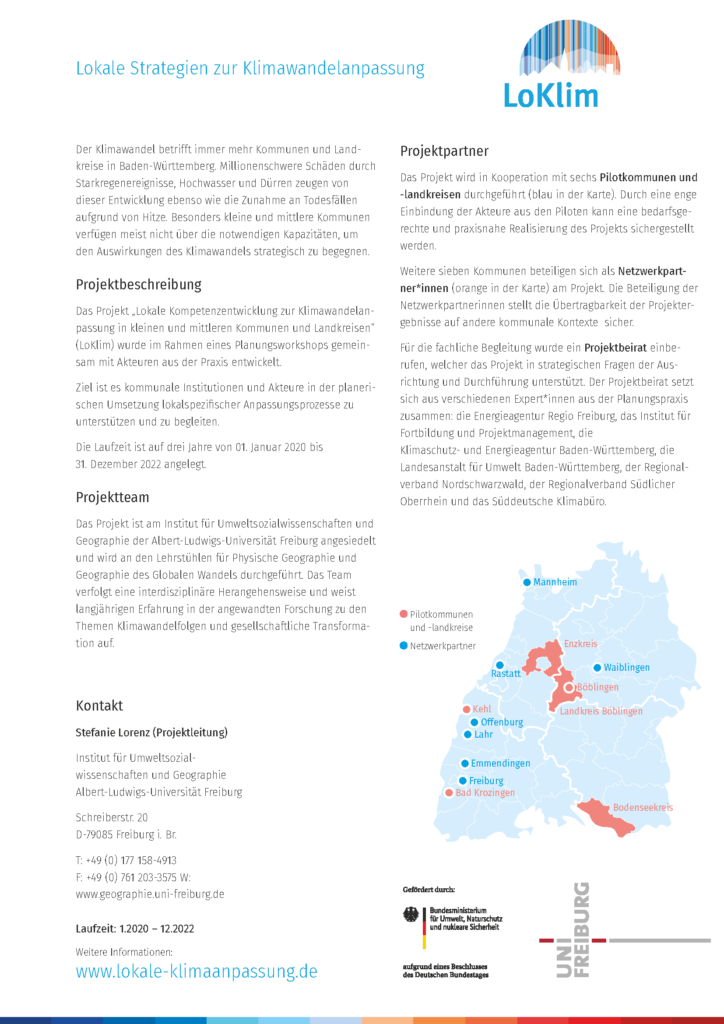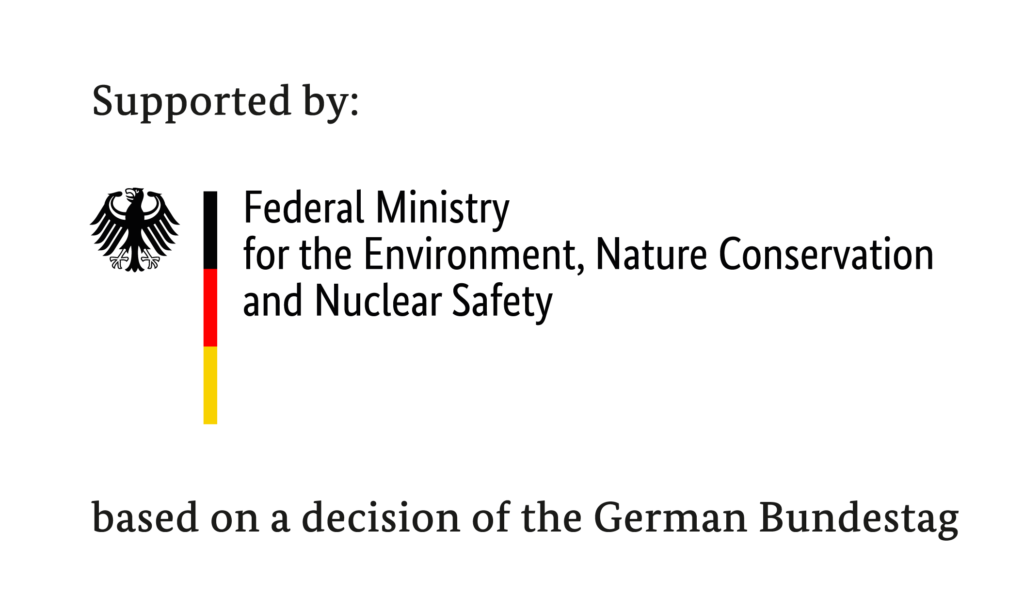The project
The aim of the LoKlim project (Local Competence Development for Climate Change Adaptation in Small and Medium-Sized Municipalities and Districts) is to support municipal institutions and actors in the planning implementation of locally-specific adaptation processes. To this end, application-oriented instruments for the specific development and expansion of competencies and capacities for the adaptation to climate change in small and medium-sized municipalities and districts (“Landkreise”) in Baden-Württemberg will be developed.
To achieve this goal, four sub-targets were defined:
1. Typification of locally-specific climate change impacts for all municipalities in Baden-Württemberg as a basis for municipal planning.
2. Development of a model for application-oriented process paths for climate change adaptation that will be empirically validated.
3. Pilot implementation of adaptation processes in municipalities and districts participating in the project.
4. Exchange, knowledge transfer and competence building of the participating as well as other municipal and regional actors in the framework of network meetings, practical seminars and on-site workshops.
The project is carried out in cooperation with the following six pilot municipalities and districts:
- City of Bad Krozingen
- City of Böblingen
- City of Kehl
- Bodensee district
- Enzkreis district
- Böblingen district
In addition, the cities of Emmendingen, Freiburg, Lahr, Mannheim, Offenburg, Rastatt and Waiblingen participate in the project as network partners. A project advisory board has been set up to provide technical support and to assist the project team in strategic matters relating to the direction and implementation of the project.
The primary target group of the project are the executives and employees of the administration in the pilot and network municipalities or districts, in whose area of responsibility aspects of climate change adaptation fall. As a further target group, political representatives are to be involved in the project as required and in consultation with the local pilot governments, in particular mayors in small municipalities.
The project started in January 2020 and is planned for a duration of three years.

